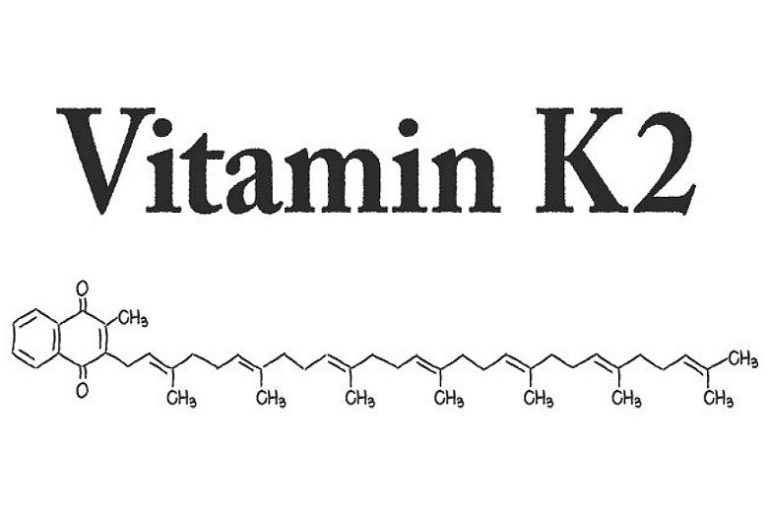introduction
In the realm of nootropics, substances that enhance cognitive function, Vitamin K2 has emerged as a promising candidate for its potential cognitive and overall health benefits. In this comprehensive guide, we will explore the various aspects of Vitamin K2 in the context of nootropics, delving into its functions, sources, mechanisms, and potential advantages for brain health and cognitive enhancement.
Understanding Vitamin K2
Vitamin K2, also known as menaquinone, is a fat-soluble vitamin that belongs to the family of Vitamin K. It plays a vital role in bone and cardiovascular health by regulating calcium metabolism. More recently, researchers have begun to uncover its potential impact on brain health and cognitive function.
The Role of Vitamin K2 in Brain Health
Vitamin K2 exerts its influence on the brain through several mechanisms. One of its primary roles is related to its impact on calcium balance, a crucial factor in neuronal function and synaptic plasticity.
Calcium Regulation in Neurons
Research indicates that Vitamin K2 may help regulate calcium in neurons, preventing excess calcium from damaging cells and influencing various neurodegenerative conditions. This mechanism is particularly relevant in preserving brain health and function.
Anti-Inflammatory Properties
Vitamin K2 possesses anti-inflammatory properties, which can contribute to reduced neuroinflammation, a factor associated with cognitive decline and various neurological disorders.
Cognitive Benefits of Vitamin K2
The potential cognitive advantages of Vitamin K2 are a subject of growing interest among researchers and nootropic enthusiasts. Some of the benefits include:
Enhanced Memory
Vitamin K2’s role in preserving neuronal health and synaptic plasticity may lead to improved memory function, making it a valuable component in cognitive enhancement.
Protection Against Cognitive Decline
Research suggests that Vitamin K2’s neuroprotective properties may help reduce the risk of cognitive decline and neurodegenerative diseases, such as Alzheimer’s.
Dietary Sources of Vitamin K2
Vitamin K2 is naturally found in certain foods, primarily fermented products and animal-based sources. Understanding dietary sources is crucial for those considering Vitamin K2 as part of their nootropic regimen.
Fermented Foods
Fermented foods, such as natto (a Japanese dish), sauerkraut, and certain cheeses, are rich sources of Vitamin K2, particularly menaquinone-7 (MK-7).
Animal-Based Sources
Animal products, like liver, egg yolks, and meat, contain menaquinone-4 (MK-4), another form of Vitamin K2. These sources are more readily available and well-absorbed by the body.
Safety and Considerations
While Vitamin K2 offers potential cognitive benefits, there are essential safety considerations, particularly for those on medications and with specific medical conditions.
Medication Interactions
Vitamin K2 can interact with blood-thinning medications, and individuals on such medications should consult healthcare professionals before incorporating it into their nootropic regimen.
Dosage and Supplementation
Determining the right dosage of Vitamin K2 for cognitive enhancement requires careful consideration. It is advisable to consult with a healthcare provider or nutritionist to ensure an appropriate and safe intake.
Conclusion
Vitamin K2 is an emerging player in the world of nootropics, offering potential cognitive benefits through its impact on calcium regulation and neuroprotection. While it shows promise in enhancing memory and protecting against cognitive decline, safety considerations are vital, especially for individuals with existing medical conditions or on medications.
As the research into the cognitive benefits of Vitamin K2 continues, it is advisable to stay informed about its potential advantages, dietary sources, and safety precautions. This comprehensive guide serves as a valuable resource for those looking to explore the role of Vitamin K2 in the realm of nootropics and its potential impact on cognitive function and brain health.
- What’s the Difference Between Delta-10 and THCV? - November 1, 2023
- Best Delta-10 THC Gummies Reviewed A Comprehensive Guide - November 1, 2023
- Unlocking the Potential: The Comprehensive Guide to the Benefits of Vitamin K2 in Nootropics - November 1, 2023

